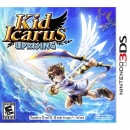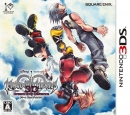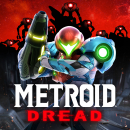Dream logic and its derivatives can be employed regardless of art style, budget, and target audience, yet sometimes I feel as if I'm the only one fascinated by this method of framing a game.
"It's too unrealistic."
"It's not immersive."
"It's too convienent."
"It kills my suspension of disbelief."
No, no, no, no- properly applied dream logic doesn't do any of that. Insane moon logic (IML), on the other hand, does... and it's the bane of countless (even otherwise good) video game plots. IML is absurd (Bionic Commando wife/arm!), dream logic at least has the pretense of fitting naturally in the context of a narrative.
Let's look at possibly the most obvious example: Link's Awakening. Oddities like Chain-Chomps and Wind Fishes are easily explained by not needing to be explained. It's a dream, so it's not necessarily an absurdity. Even experts on dreams can't claim to fully understand the subject of their work. And best of all, the game tries to make the player care about the dream world and circumvents the apathy associated with the "it was all a dream" trope.
Horror media in general is like the silent protector of dream logic. Some of the best horror stories ever told play up the nightmare/unknown/imagination angle, and among video games, my favorite example is Silent Hill 2. It does a phenomenal job of explaining what only needs to be be explained, and that largely boils down to a great many things being born from the protagonist's mental state, including Pyramid Head. It's great.
Plot holes? Not as much of an issue as before. Problems only arise when a game contradicts it's own logic.
Compare with the "ludonarrative dissonace" debacle last year in which some games that aimed for more grounded, less pulpy/dreamy/strange presentation were criticized for having lots of violence that didn't mesh thematically. I'm not one of those people, but I get where they're coming from, and the situation is avoidable. Genre savviness and sheer creative vision can rise to the occasion without compromising all-important reality. Don't take this as a condmmnation- games that refuse to handwave harder than a legion of concert-goers can be perfectly fine. I just think it's a tricker balance between gameplay and presentation, in the end. Few games do it well, and the ones that do may still have occasional conflicts between game and experience. The Last of Us is a potential example, but I'd like a few more years of distance and meditation before coming to a conclusion about whether or not Ellie's invicibility ruins the atmosphere. Ugh. I hate being forced to think about games this way.
But hey, it's simply my taste in framing devices. And while it does allow for an immense amount of potential creativity, there's an equally immesense possipility of screwing the pooch. Particularly when narrative cleverness and/or complexity is prioritized over gameplay. That, I'm afraid, is probably the subject of my next thread whenever I get around to it.
3DS Friend Code: 0645 - 5827 - 5788
WayForward Kickstarter is best kickstarter: http://www.kickstarter.com/projects/1236620800/shantae-half-genie-hero









































